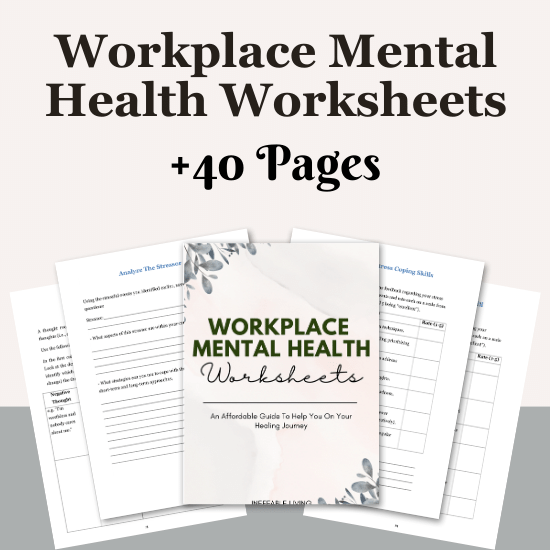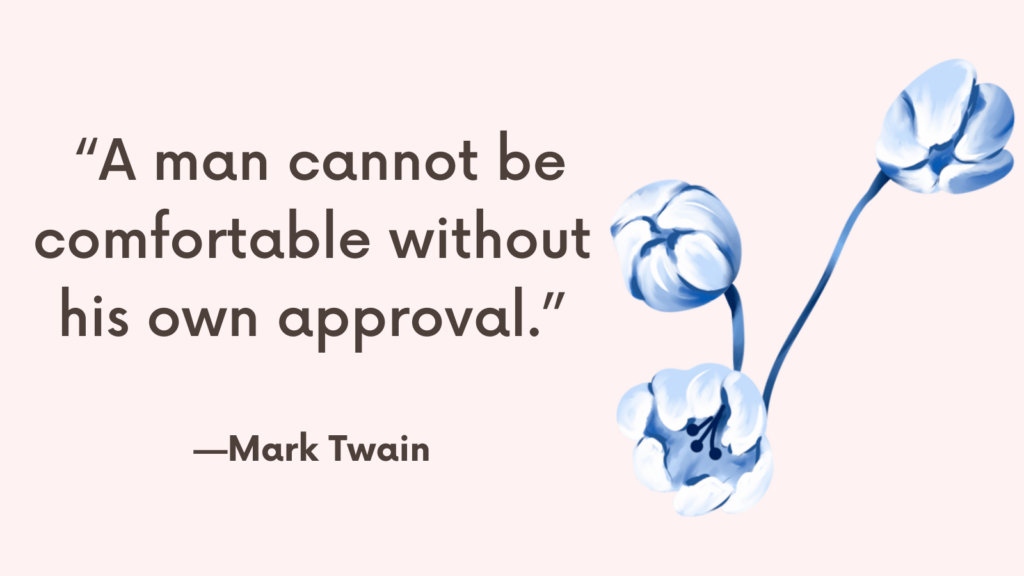People-pleasing at work involves prioritizing others’ needs and approval over your own, often at the expense of your well-being and professional growth.
While it might seem like a way to maintain harmony and gain favor, chronic people-pleasing can lead to burnout, resentment, and a lack of recognition for your contributions.
Learning to stop people-pleasing is essential for setting healthy boundaries, asserting yourself, and achieving a more balanced and fulfilling work life.
What People-Pleasing at Work Look Like
People-pleasing at work may look like being helpful or cooperative on the surface — but underneath, it’s often driven by fear of rejection, conflict, or disappointing others. While it may earn short-term approval, long-term people-pleasing can lead to burnout, resentment, and weakened professional boundaries. Recognizing the signs is the first step toward change.
1. Saying Yes to Every Request
You automatically agree to help, even when you’re overloaded or the request is unreasonable, because you’re afraid saying no will upset others or damage your reputation.
2. Avoiding Conflict at All Costs
You stay silent in meetings, go along with decisions you disagree with, or avoid giving feedback to keep the peace, even when it compromises your own needs or values.
3. Over-Apologizing for Small Things
You constantly say “sorry” — for asking questions, needing help, or simply taking up space — even when you haven’t actually done anything wrong.
4. Taking on More Than Your Share
You often end up doing extra tasks, covering for others, or working late to prove yourself or avoid letting anyone down, even when it’s beyond your actual job role.
5. Avoiding or Downplaying Your Own Needs
You skip breaks, ignore stress, or minimize your own workload to focus on pleasing your boss or colleagues, leaving your well-being last on the list.
6. Seeking Constant Approval and Reassurance
You rely heavily on praise, validation, or others’ approval to feel okay about your work, making it hard to trust your own judgment or feel secure in your contributions.
7. Feeling Guilty for Setting Boundaries
When you do try to say no or ask for what you need, you’re flooded with guilt or anxiety, worrying that you’re selfish or difficult.
8. Prioritizing Others’ Priorities Over Your Own
You quickly drop your own tasks or goals to handle what others want, often leaving your personal or professional growth on the back burner.
9. Hiding Your True Opinions or Preferences
You often agree outwardly but disagree inwardly, avoiding expressing your real thoughts because you fear rejection, judgment, or conflict.
10. Feeling Exhausted, Resentful, or Invisible
Despite doing everything to please others, you end up drained, overlooked, or resentful — and wonder why no one seems to notice or appreciate how much you give.
How to Stop People-Pleasing at Work?
1. Recognize the Signs of People-Pleasing
Start by identifying the signs of people-pleasing behavior at work.
Common signs include difficulty saying no, overcommitting, seeking constant approval, avoiding conflict, and feeling responsible for others’ happiness or success.
Awareness is the first step in changing behavior. By recognizing when you’re people-pleasing, you can begin to take steps to address it.
2. Understand the Root Causes
Reflect on why you engage in people-pleasing.
It might stem from a fear of rejection, a need for approval, low self-esteem, or past experiences where pleasing others felt necessary for acceptance or security.
Understanding the root causes helps you address the underlying issues driving your people-pleasing behavior, making it easier to change.
Related: People Pleaser Quiz (+Top 21 Proven Ways to Stop People Pleasing)
3. Learn to Say No
Practice saying no to requests that don’t align with your priorities or that would overextend you. Start with small, low-stakes situations, and gradually build up to more challenging ones.
Use phrases like, “I’m unable to take this on right now,” or “I’ll need to decline, but thank you for considering me.”
Saying no is crucial for setting boundaries and protecting your time and energy. It also teaches others to respect your limits.
4. Set Clear Boundaries
Establish clear boundaries around your time, workload, and responsibilities. Communicate these boundaries to your colleagues and supervisors, and stick to them consistently.
Boundaries help prevent others from taking advantage of your willingness to help, ensuring that you’re not overburdened or undervalued.
Related: 10 Signs You’re Dating A People Pleaser
5. Prioritize Your Own Work and Goals
Focus on your own tasks, projects, and career goals. Make a list of your priorities and use it to guide your decisions about where to invest your time and energy.
Prioritizing your own work helps you achieve your professional goals and ensures that your contributions are recognized and valued.
6. Practice Assertiveness
Develop assertiveness by expressing your thoughts, needs, and opinions clearly and confidently. Use “I” statements to communicate your perspective without being aggressive or passive.
Assertiveness allows you to advocate for yourself and your needs, reducing the likelihood of being taken advantage of or overlooked.
7. Detach from the Need for Approval
Work on detaching from the need for constant approval from others. Remind yourself that your worth is not dependent on others’ opinions and that it’s okay if not everyone agrees with or likes you.
Letting go of the need for approval frees you from the pressure to please everyone, allowing you to make decisions that are best for you and your work.
Related: Fear of Disappointing Others: Top 10 Ways to Overcome it
8. Manage Conflict Constructively
Learn to handle conflict in a constructive way rather than avoiding it. Approach conflicts with a problem-solving mindset, focusing on finding a solution rather than appeasing others.
Managing conflict effectively helps you maintain your integrity and ensures that your needs and boundaries are respected in the workplace.
9. Delegate When Necessary
Delegate tasks when appropriate, rather than taking on everything yourself. Recognize that you don’t have to do it all and that delegating can be an important part of teamwork.
Delegating prevents burnout and ensures that you can focus on tasks that align with your strengths and priorities.
10. Reflect on Your Achievements
Regularly reflect on your accomplishments and the value you bring to your work. Keep a record of your achievements, positive feedback, and moments when you successfully asserted yourself.
Reflecting on your achievements builds self-confidence and reinforces the idea that you don’t need to rely on people-pleasing to be successful and valued at work.
Related: The Danger of Being a People Pleaser
11. Seek Support and Feedback
If you’re struggling to break free from people-pleasing, seek support from a mentor, coach, or therapist. Additionally, ask for feedback from trusted colleagues on your efforts to set boundaries and be more assertive.
Support and feedback provide encouragement and guidance, helping you stay on track as you work to change your behavior.
12. Be Patient with Yourself
Recognize that breaking the habit of people-pleasing is a process that takes time. Be patient with yourself, and celebrate small victories along the way.
Patience and self-compassion help you stay committed to change, even when it feels challenging or uncomfortable.
Related: Top 7 Signs People Pleasing Is a Trauma Response

Conclusion
Stopping people-pleasing at work is essential for creating a more balanced, fulfilling professional life.
By setting boundaries, prioritizing your own needs, and learning to say no, you can reduce stress, prevent burnout, and ensure that your contributions are recognized and valued.
Remember, you have the right to advocate for yourself and to work in a way that honors your well-being and professional goals.
With practice, you can shift from people-pleasing to a more empowered, confident approach to your work and relationships.



